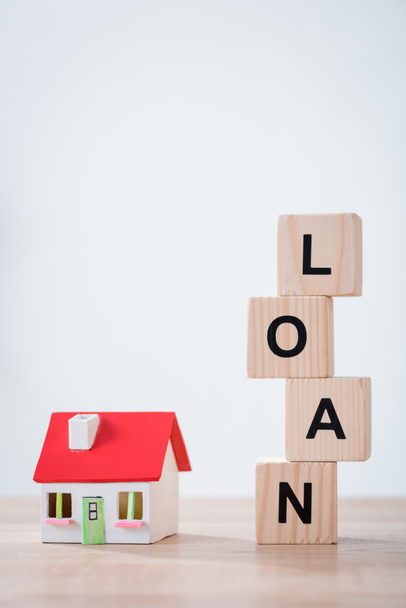Are you looking to purchase a new home but feel overwhelmed and unsure of what to do? The process for buying a house is complex and filled with steps. Knowing what to expect when buying a house can be incredibly helpful in preparing for the journey ahead.
Buying a house is one of the biggest purchases many people will make in their lifetime. Getting the keys to your dream home after all that hard work is such an amazing feeling—but getting there requires persistence and knowledge. Home buyers may need assistance from real estate professionals, lenders, and other resources throughout this process.
Understanding the timeline for buying a house can be beneficial for anyone who may be considering taking on this long-term commitment, as well as those who are already deep into it. With the right advice and understanding of each step of the homebuying journey, you’ll have the information you need to make sure you’re prepared moving forward, no matter where you are in your process to buy your next house.
Determining your budget and get pre-approved for a mortgage:
Determining your budget and getting pre-approved for a mortgage are important steps in the process of buying a home. To determine your budget, you should first figure out how much you can afford to spend on a home by considering your income, debts, and savings. You should also consider the ongoing expenses of owning a home, such as property taxes and maintenance costs. Once you have a general idea of what you can afford, you can start looking for homes in your price range.
Getting pre-approved for a mortgage is also an important step in the home buying process. This involves working with a lender to determine how much you can borrow and what type of loan is best for you. To get pre-approved, you will typically need to provide the lender with information about your income, employment, credit history, and assets. The lender will then use this information to determine how much you can borrow and what your interest rate will be.

Once you have your budget and pre-approval in place, you can start looking for homes that fit your criteria and make offers with confidence that you will be able to finance the purchase.
Finding a real estate agent is an important step in the process of buying a home. A real estate agent can help you navigate the complex process of buying a home, from searching for properties that fit your needs and budget, to negotiating offers and closing the deal.
When looking for a real estate agent, you should start by asking friends, family, and colleagues for recommendations. You can also search online for agents in your area, and look at their reviews and ratings. Once you have a list of potential agents, you should interview them to find out more about their experience, qualifications, and approach to working with clients.
When choosing a real estate agent, it’s important to find one that you feel comfortable working with and who has a good understanding of the local real estate market. A good agent will be able to provide you with valuable information about different neighborhoods, schools, and local amenities, and can also help you find properties that meet your specific needs and budget.
Once you have found a real estate agent that you feel comfortable working with, you can start the process of searching for a home. Your agent will help you create a list of properties to visit, schedule tours, and provide you with information about each property. They will also assist you in making an offer, negotiating the price, and guiding you through the closing process.
Keep in mind that working with a real estate agent is not mandatory, and some people prefer to buy a home without the assistance of an agent. However, having an agent can save you time and effort, and can also provide you with valuable knowledge and expertise.
Finding a real estate agent:
Finding a real estate agent is an important step in the process of buying a home. A real estate agent can help you navigate the complex process of buying a home, from searching for properties that fit your needs and budget, to negotiating offers and closing the deal.
When looking for a real estate agent, you should start by asking friends, family, and colleagues for recommendations. You can also search online for agents in your area, and look at their reviews and ratings. Once you have a list of potential agents, you should interview them to find out more about their experience, qualifications, and approach to working with clients.
When choosing a real estate agent, it’s important to find one that you feel comfortable working with and who has a good understanding of the local real estate market. A good agent will be able to provide you with valuable information about different neighborhoods, schools, and local amenities, and can also help you find properties that meet your specific needs and budget.
Once you have found a real estate agent that you feel comfortable working with, you can start the process of searching for a home. Your agent will help you create a list of properties to visit, schedule tours, and provide you with information about each property. They will also assist you in making an offer, negotiating the price, and guiding you through the closing process.
Keep in mind that working with a real estate agent is not mandatory, and some people prefer to buy a home without the assistance of an agent. However, having an agent can save you time and effort, and can also provide you with valuable knowledge and expertise.
Making an offer:
Making an offer is an important step in the process of buying a home. Once you have found a home that you are interested in purchasing, your real estate agent will help you prepare an offer. The offer will include information about the purchase price you are willing to pay for the home, as well as any contingencies or conditions that you would like to include in the sale.

The purchase price is typically the main component of the offer, but there are other terms that can be included such as closing date, contingencies, and financing. Contingencies are conditions that must be met before the sale can be completed, such as a satisfactory home inspection or the sale of your current home. Financing details will also be included, such as the type of loan and the lender you plan to use to finance the purchase.
Once the offer is prepared, it will be presented to the seller or the seller’s agent. The seller may accept the offer, reject it, or make a counteroffer. If the seller makes a counteroffer, your agent will negotiate the terms with the seller’s agent, until both parties reach a mutually agreed-upon purchase price and terms.
It’s important to remember that making an offer on a property is not a guarantee that the sale will go through. The seller has the right to accept or reject any offer, and may receive multiple offers for the same property. The offer process can be competitive, and buyers may need to be prepared to make multiple offers before a sale is successfully completed.
After the offer has been accepted, the purchase contract will be signed, and the process of closing the sale will begin. This typically involves a series of steps such as home inspection, mortgage application, and appraisal, and the process can take several weeks to complete.
Negotiating the price:
Negotiating is an important part of the process in buying a home. Negotiations typically begin when a buyer submits an offer to purchase a property and the seller responds with a counteroffer. The goal of these negotiations is to reach an agreement on the purchase price and terms of the sale that is acceptable to both parties.
During the negotiation process, your real estate agent will act as your representative, working to negotiate the best deal possible on your behalf. They will communicate with the seller’s agent, review and discuss the terms of the offer and counteroffer, and make any necessary adjustments to the terms of the sale.
Some common areas of negotiation include the purchase price, closing date, contingencies, and financing terms. For example, the buyer may want to negotiate a lower purchase price, while the seller may want to negotiate a shorter closing date. Contingencies such as home inspection and appraisal can also be negotiated.
It’s important to remember that the negotiation process is not always easy and it can be emotional. Both parties may have to compromise to reach an agreement. However, with the help of a professional real estate agent, the negotiation process can be managed effectively and efficiently.
In addition, buyers and sellers can also negotiate on specific items that may be included in the sale of a home, such as appliances, furniture, or even the closing cost. Keep in mind that any agreement or compromise should be put in writing and signed by both parties.
It’s important to keep in mind that negotiation is a part of the process when buying a home, and it is not uncommon for buyers and sellers to go back and forth on terms before reaching a final agreement.
Closing on the sale:
Closing on the sale is the final step in the process of buying a home. This is when the ownership of the property is transferred from the seller to the buyer and all of the financial transactions are completed.
The closing process typically begins after the buyer and seller have agreed on the purchase price and terms, and the purchase contract has been signed by both parties. Before closing, there are several tasks that need to be completed, such as:
- Home inspection: A professional inspector will examine the property to ensure that it is in good condition and that there are no major issues.
- Appraisal: An appraisal is performed to determine the value of the property. This is typically done to ensure that the purchase price is in line with the value of the property.
- Mortgage application: The buyer will apply for a mortgage and provide the lender with all the necessary documentation.
- Title search: A title search will be done to ensure that the seller has clear title to the property and that there are no liens or judgments against it.
- Closing documents: The closing agent will prepare a package of legal documents that will be signed by both the buyer and seller. These documents will include the purchase contract, mortgage documents, and any other relevant documents.
Once all the necessary tasks have been completed, the closing date will be set. On the closing date, the buyer, seller, and their respective agents will meet to sign the closing documents, and the buyer will pay the purchase price and any closing costs. The closing agent will then record the transfer of ownership with the local government and the buyer will officially become the owner of the property.

It’s important to note that the closing process can take several weeks to complete, and the timeline may vary depending on the complexity of the transaction and the availability of all parties. It’s also important for the buyer to review all the closing documents and understand them before signing them.

